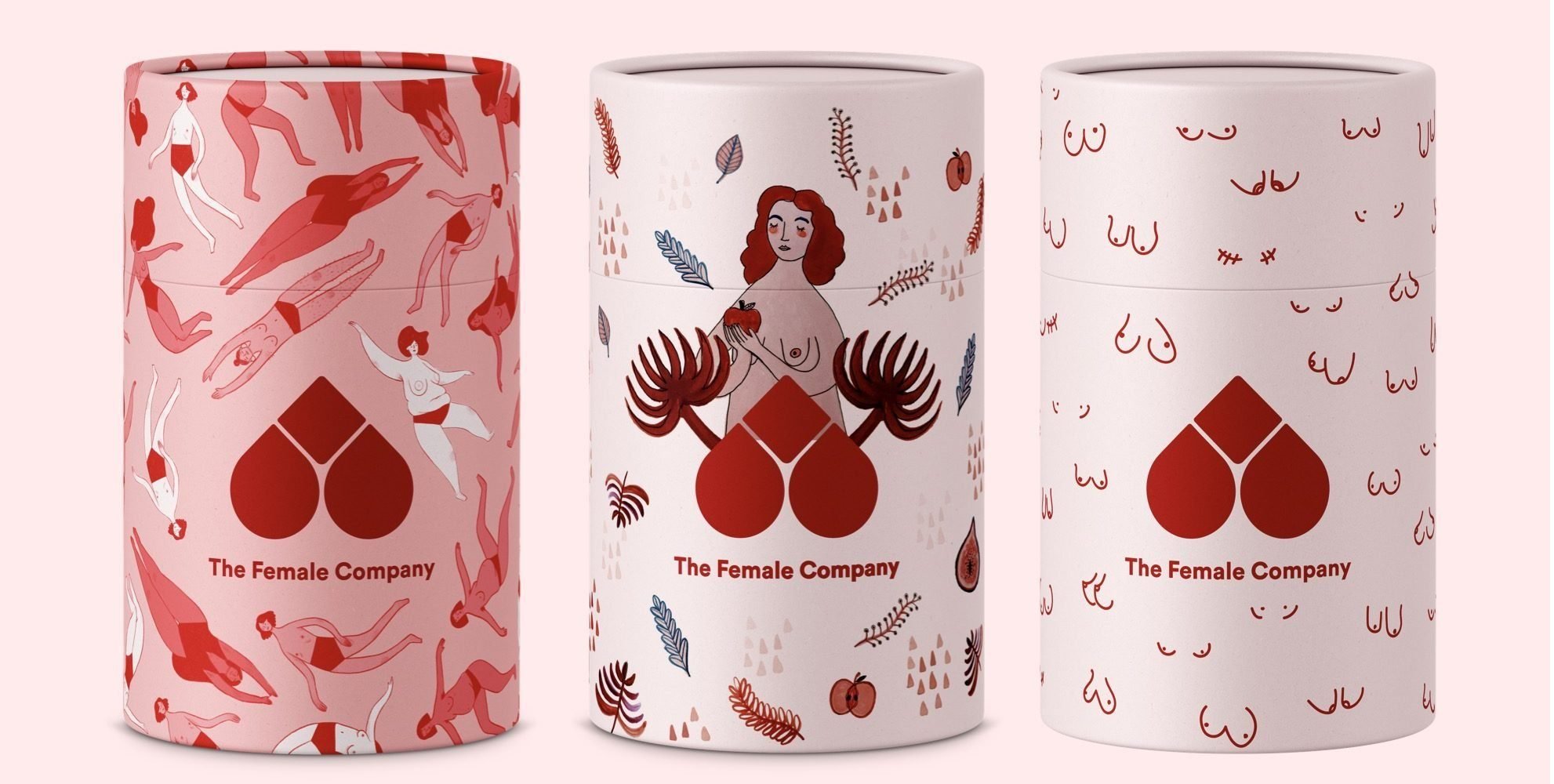
The Female Company Turns Buying Organic Tampons Into A Political Statement In Support Of Women
“The Tampon Book” is a declaration of independence from German tampon-tax tyranny. Produced by The Female Company founders Sinja Stadelmaier and Ann-Sophie Claus, the book and the company behind it is intent on eliminating lingering shame around menstruation while addressing the inequality of value added taxes (VAT) amounting to 19% on tampons. In Europe, women spend an average of 16,000 euros or around $18,000 in their lifetimes on feminine hygiene products and suffer an inequitable economic burden because of the so-called pink tax on those products that men don’t have to shell out for.
Backed by Munich-based media group Hubert Burda Media, The Female Company has been a major player in the feminine hygeine category shifting from entrenched corporations toward indie players in Europe. Founded in 2018 by Claus and Stadelmaier in the city Stuttgart, the brand has made its mark with organic cotton tampons and a fearless approach. Customers can order the pesticide-free tampons in various sizes through the company’s online shop and purchases support period products for women living in refugee shelters. In an interview with Beauty Independent, Claus explains how feminine hygiene products have become a political issue and why it’s time to break down barriers in the period segment.
Why are Germans uncomfortable talking about menstruation?
In Germany, we’re embarrassed. As German women, we hide our tampon in our fists when going to the toilet, and many young girls are barely able to talk about their menstruation. However, the taboo is widespread worldwide. Most terrible is that in countries like India, the social impact is even more disastrous. Girls can’t go to school. Women are not permitted in sacred places. For this reason, we are currently setting up our own project online that addresses how menstruation directly affects women’s emancipation. The taboo has evolved over time and was strongly related to oppression in the past. It may sound hyper feminist, but, sadly, it’s the truth. Part of the story is printed in “The Tampon Book.”
“The Tampon Book” was created together with the advertising agency Scholz & Friends. It is a menstruation guidebook filled with tampon information and actual tampons, and includes a call to action around a very specific grievance: Tampons are still subject to VAT at 19% and are, therefore, considered luxury goods.
How has the book been received?
The media in particular reported very positively about it, and the first drop of the German version was sold out after two days. “The Tampon Book” even won a Grand Prix at the Cannes Lions.
You also sent 100 copies to the German Bundestag, and there’s a chance you will make political history with your tax-adjusting invention. What else do you hope to achieve?
We know that laws aren’t changed via Instagram posts, so we sent the books to the German [national legislative body] Bundestag. At the beginning of May, we were personally invited by various parties to talk about the reduction of the tampon tax. On May 21, 2019, after our discussion, [German political party] Die Linke submitted a request for a reduction of the tampon tax to the Bundestag. Recently, the Finance Working Group of the CDU/CSU Parliamentary Group has also come out in favor of abolishing the tampon tax. So, in October, the Bundestag will discuss how to proceed further with the issue. And, don’t worry, we’ve got some more actions planned.
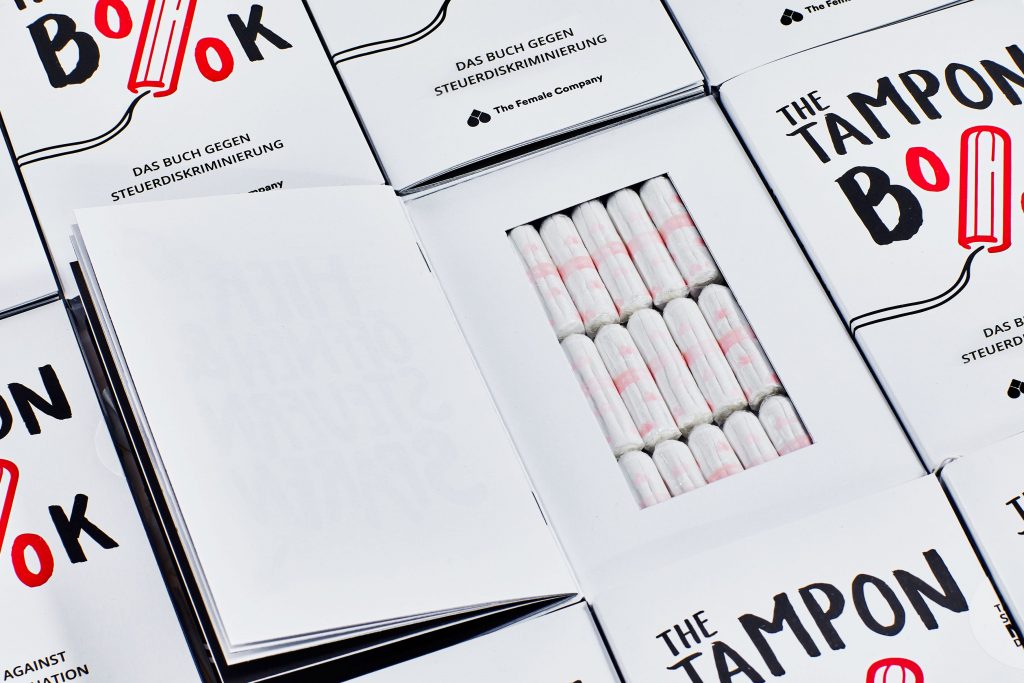
Can you tell us more about your brand’s upcoming activities?
We are constantly developing our brand and will soon be launching organic panty liners and sanitary towels. And we’ re about to enter the shelves of the DM-Drogerie Markt stores.
Drugstore chain shelves in Europe are primarily packed with conventional period care brands. Do you think the time is right to break open the market?
The shelves for sanitary products need a modern coat of paint! Large companies like o.b. have missed out on some trends because they react extremely slowly, and innovations take years to develop. So, The Female Company has a clear advantage. As a startup company, we are much closer to our customers, anticipating their wishes and being able to realize them within a few weeks. At the same time, the figures show that the eco-movement long ago has ceased to be just a trend. The market share of [o.b. parent company] Johnson & Johnson is still about 70%. We’re betting that will change soon, and it’s precisely what motivates us.
“Our boxes convey inspiring concepts such as boobs diversity, natural beauty or feelings of pride. The design allows to communicate in a wonderful way.”
What’s your strategy to change the market?
First of all, providing this public service is very important to us. Getting the product that most women need at regular intervals should be easy and convenient. For only 2.50 euros per month, we fulfill subscriptions for each customer through direct mail. It’s a simple and smart concept, and we’re looking at a potential market of 123 million women in the EU alone who regularly experience their periods. So, we expect to see rapid, broad growth. The Female Company is a strong, customer-centric brand that has the potential to bring a broad product portfolio into the market over the long term.
Your boxes are designed to be like collector’s editions. Next month, you are planning to launch two more designed by well-known German illustrators. What’s the idea behind the design?
The box is a fun way to tackle some intimate hygiene issues you don’t really want to talk about. Our favorite feedback to date is, “For the first time, I was excited about having my menstrual period.” We love that! It’s because women are happy to receive illustrated boxes with empowering texts or that you got a box of the latest limited-edition design. For the first time in a woman’s life, a box of tampons does not have to be hidden in the bathroom cabinet, but can be displayed to beautify the bathroom.
Do you think it’s possible for packaging design to helps eliminate shame?
A smart design solicits an emotional response while telling the customer a story. Our boxes convey inspiring concepts such as boobs diversity, natural beauty or feelings of pride. Design allows us to communicate ideas in a wonderful way, but there was also a need to improve the product itself, the tampon.
How do you get the message out about your organic, pesticide-free materials?
In our surveys, we found 60% of our respondents admit that they had no idea what their tampons were made of. That’s why we wanted to offer a product that is completely transparent in every way: a product that we use ourselves with wholehearted conviction. An essential imperative for us is that no chemicals or pesticides are used during cultivation. Our rapid growth, the early deal with the DM-Drogerie Markt and the investment of Hubert Burda Media in our business have made us realize that women are starting to think about what their products are made of and would like to be offered an organic alternative. Right now, we are very active in collaborating with various organizations on environmental issues. This year, we will be adding some great innovations that will be available in our online shop and DM-Drogerie Markt stores.
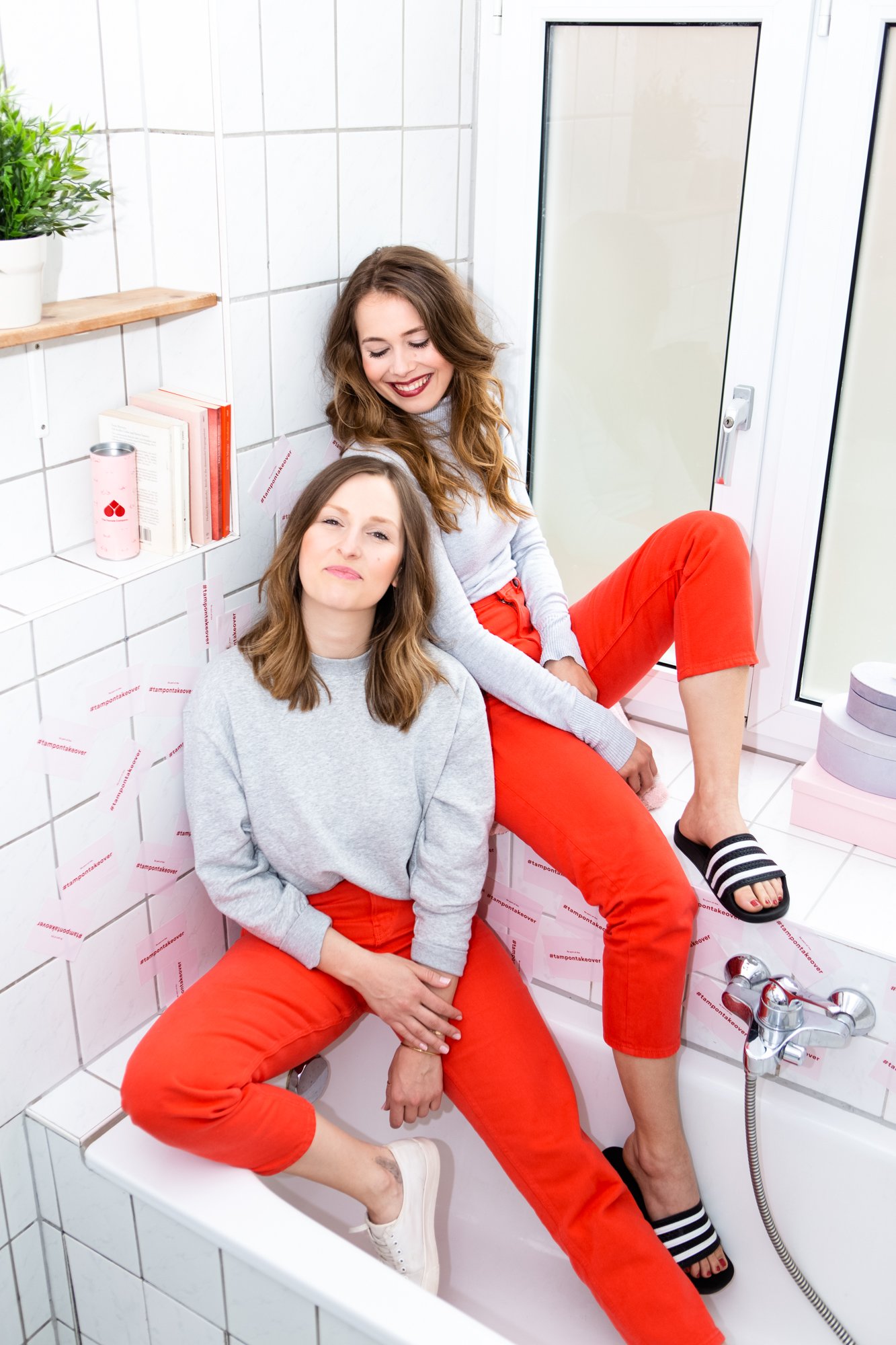
The Female Company is supported by Burda Principal Investments (BPI), an arm of Hubert Burda Media. Did you pitch your business to a man or woman to secure investment?
Fact is, we came to the attention of a man, Christian Teichmann, managing director of Burda Principal Investments. We met for the first time in January 2018 at Burda’s Start-up Day ’n’ Nite, a conference for young entrepreneurs, where we managed to win out over ten other companies. Christian Teichmann was part of the jury and was impressed by us handling this taboo topic in such an open way.
Is it difficult to win over men?
With a sense of humor, we feel we can even impress some men with our idea. We use a German double entendre “Läuft bei dir,” which means “Things are going,” and that goes down well with everyone. We also offer webinars to educate men and are happy if they want to learn more about what happens in the body of their potential female partner. Education is not just a one-sided proposition.
Do you ever see a condescending smile during a pitch?
Critics of one’s own business idea will always exist, and sometimes that’s even very motivating.
You also produce an in-house magazine, which is deliberately provocative. Do you find that’s necessary to keep the subject from being ignored?
If we’re going to make a difference, we’ve got to be loud. More importantly, that’s our sense of humor. It’s just the way we are. We believe that our relaxed way of approaching the issue will finally ensure a more relaxed attitude toward menstruation.
Would you call yourself an ultra-feminist?
I think talking about ultra-feminism seems to be a bit outdated. To me, all women are feminists if they support each other, stand up for their rights and don’t tolerate being treated differently because of their gender.

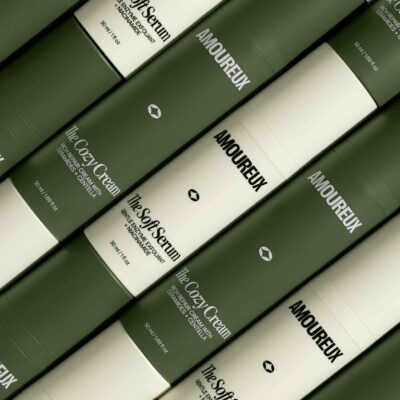
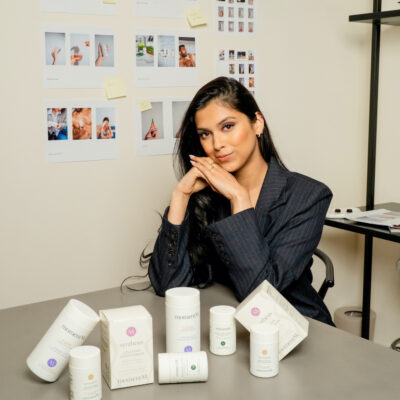
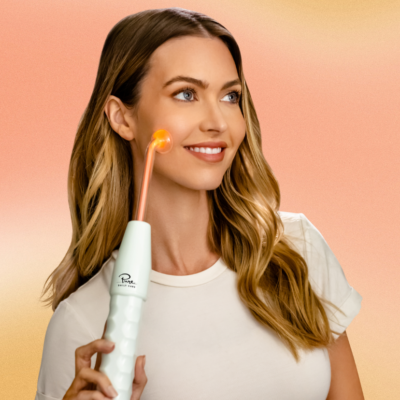
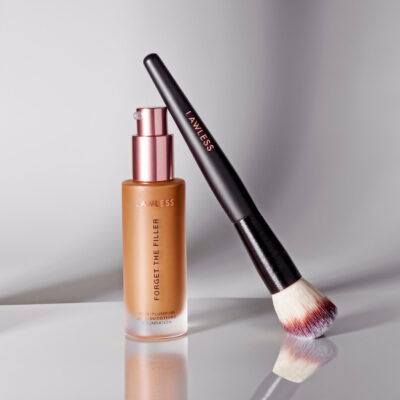
Leave a Reply
You must be logged in to post a comment.